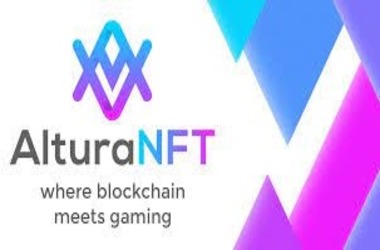
Over the last several years, the gaming business has seen exponential development, with Accenture predicting that the sector’s overall worth exceeds $300 billion.
Given the fact that over 500 million individuals have entered the gaming world in the last three years, investors are eager to support startups and firms that are reshaping the sector.
“The emergence of new gaming platforms and changing demographics are pushing gaming businesses away from being product-centric platforms and toward becoming experience-oriented platforms,” said Seth Schuler, managing director of Accenture’s Software & Platforms industry group, in reference to the growing dominance of gaming in the entertainment industry.
“The gaming business must strike a balance between the wants of its newest users, who are more concerned with their online interactions, and the expectations of gaming loyalists, who continue to be the industry’s most profitable clients.”
It is not just that the gaming community is expanding, but the requirements of its players are also evolving. While gaming used to be solely for leisure purposes, it has now evolved to include a monetary component, which has resulted in the rapid growth of specialized sectors such as Esports and the live-streaming of video games. Because of these financial concerns, gamers have become more enthusiastic than ever about their virtual experiences, and firms can no longer afford to disregard their expectations.
Game makers like as EA Games have learned this the hard way, with the business receiving widespread outrage from players all over the world in 2017 as a result of its usage of loot boxes in a number of its titles. Following the incident, the company was compelled to ban in-game purchases as a consequence of the situation.
The negative publicity that EA games have received is not a unique incident. In recent years, gamers from all over the globe have expressed dissatisfaction with the rising prevalence of loot boxes and other in-app purchases in their favorite games.
The use of randomness in video games has been around for a long time, but charging players for an aspect that is totally reliant on it has proven to be an unpopular strategy. This is particularly troubling when you consider that players who buy in-game assets directly or via loot boxes do not really own the things they have obtained. It is more accurate to say that players are “renting” assets rather than truly purchasing or earning them since creators have the ability to alter the assets, ban players, and discontinue support for the game.
In order to alter this reality, Altura NFT is attempting to provide players with true ownership of their in-game assets via the use of blockchain technology. The business thinks that by making it simple for developers to create non-fungible tokens (NFTs), it would be able to alter the way consumers and developers interact, ultimately resulting in digital goods obtaining inherent worth.
The following is written in white on the platform:
“Altura aims to offer simple ways for minting NFTs – nonfungible tokens – to represent in-game objects in order to make the game more enjoyable for its players. Furthermore, we would want to create Smart NFTs, which are NFTs with dynamic features that may be altered in response to time-based circumstances, function-call-based conditions, or real-world situations. Smart NFTs open up a whole new universe of possible NFTs. Currently, this is a concept that has yet to be properly applied in a user-friendly way.”
Altura NFT is an open-source project with simple APIs that is developing a protocol with a high degree of transparency that will enable the production of NFTs with a high degree of granularity. It is being developed as an open-source project with simple APIs. For example, developers might establish a transaction tax that holders would be liable for every time the ownership of the NFT changes, so establishing a new source of income.
Historically, game makers have taken a negative stance regarding methods such as Real Money Trading (RMT), believing that they give opportunities for hackers and gamers to engage in harmful behavior. This position, on the other hand, has resulted in the development of illegal marketplaces and the sale of accounts.
Today, we turned off in-game purchases for #StarWarsBattlefrontII. The game is built on your input, and it will continue to evolve and grow. Read the full update: https://t.co/asGASaYXVp pic.twitter.com/vQSOmsWRgk
— EA Star Wars (@EAStarWars) November 17, 2017
The strategy used by Altura NFT eliminates the need for such marketplaces by giving developers with the transparency that blockchain technology enables, hence eliminating the necessity for such markets.
Creators and players share ownership over assets as a consequence of this ecosystem: developers choose how an asset is utilized in their games, while players can simply trade with them, allowing them to benefit from their gaming efforts. When it comes to loot boxes, gamers will no longer have to rely on the developer’s word when it comes to the unpredictability of their algorithm since Altura NFT takes care of that for them.
With gaming firms and startups receiving more than $5.9 billion in investment during the first seven months of 2021, it is evident that venture capitalists are interested in the gaming industry. It is also worth noting that the majority of these investments have gone to firms who are attempting to alter the infrastructure and auxiliary services of the gaming industry, rather than those that are primarily focused on game production.
Altura NFT has undoubtedly profited from the heightened interest shown by investors, as shown by the fact that the value of its ALU cryptocurrency has surged by more than 500 percent in less than a month. The timing seems to be ripe for those seeking to alter the course of gaming forever, with the company aiming to capitalize on the current momentum the industry is experiencing.